User Tools
Sidebar
PROLOGO
In a theatre piece the prologue gives the audience an introduction to the plot which is about to be performed and the character involved into it.
Similarly, the prologue of 1+1=3 introduced therefore the places, the artists and the themes that were involved in the whole 1+1=3, as well as the analyses of the same format of the art exhibition.
We started with the idea that an art exhibition is a constellation of several elements, most of them stay hidden behind the finished objects put on display. The process of art production is influenced also by the space and the location where the artist is working, which other artworks and exhibitions he or she saw and the books this person is reading. Likewise, the communication process that takes place between the organizers, the curators and the participants themselves - besides having many technical details that could be irrelevant - contains for sure interesting exchanges of ideas and thoughts that may eventually go lost. The intention of this section was to make visible these parts of the production process that are not usually present within the walls of the art exhibition.
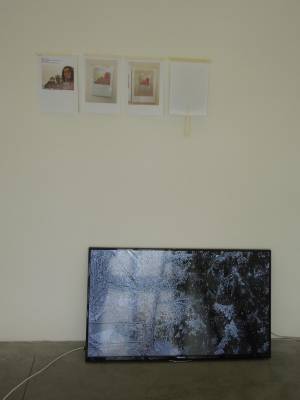
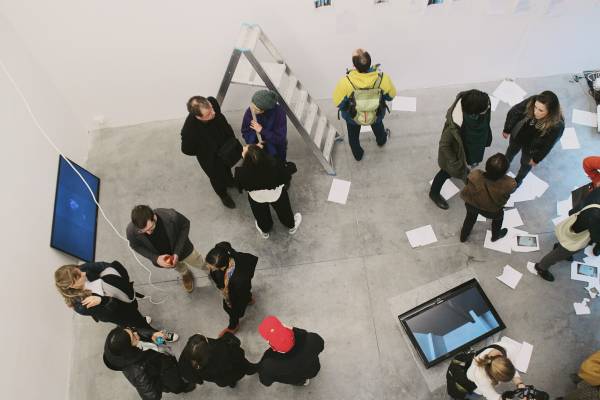
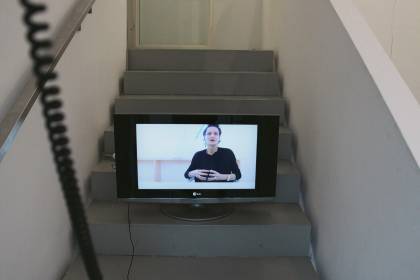
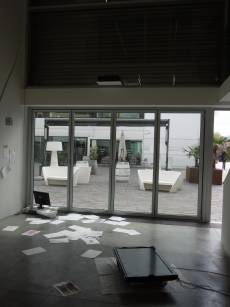
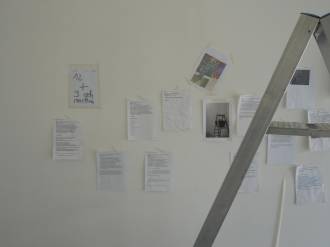
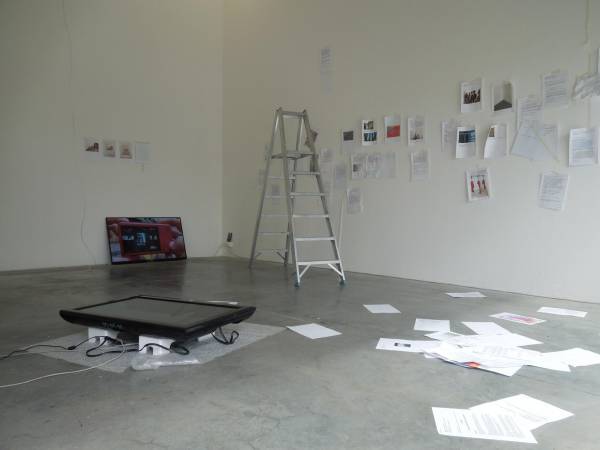
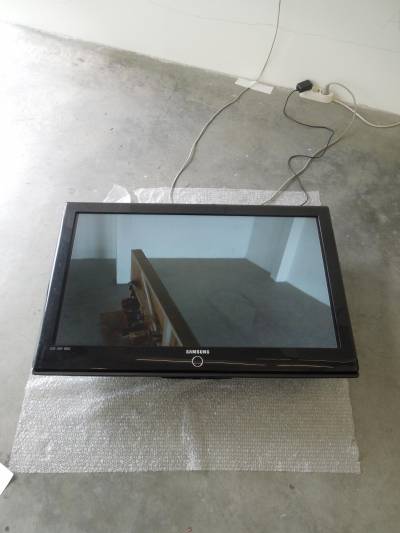
Since a residence in the the atelier house of Gap Glurns Art Point was a strong shared experience amongst all the participant artists, we decided to bring also this in the space of the Studio House of Museion. In cooperation with the Austrian association servus.at, the Atelierhaus in Glurns was equipped with a video streaming system showing in real time the rooms of Glurns Art Point in a screen in Bozen.
A second installation based on video file sharing collects video messages from the artists involved in the entire project (1+1=3), which answered to a series of requests from the curators, like: “describe (or show) the space (physical or social, internal or external, public or private) in which you are most comfortable”, “What are the features that the space where you produce your works should have and those of the space that must show them”, or “Tell us your artistic research without describing your works.”
A third display - this time printed on paper - showed the e-mail communication between GAP and the artists themselves, which in this case focused on the art exhibition: - What is the last exhibition opening you went to? - What do you expect to be as the role of the exhibition? - What is the social role of the exhibition opening? - Do you think is it possible to understand the exhibition as a social space? - How does the art show stimulates the exchange of ideas between artists, public, institutions and cities? - How do your work is influenced by the relationship between your personal identity, the culture and the society you are living in?
The answers, mostly scheduled during the same exhibition opening, were printed in real-time in the exhibition space and were hung by the audience onto the wall.
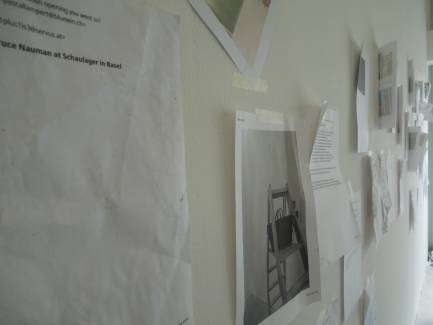
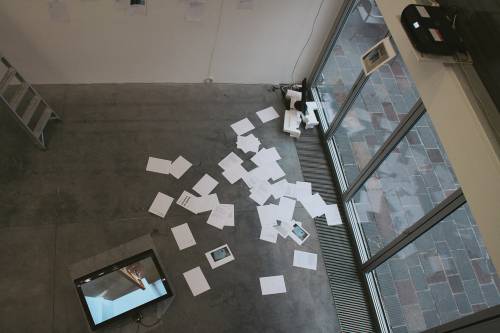
Contributions: Alessandro Cacciotti, Federica Bruni, Fernando Garcia Mendez, Frances Drayson, Antonio Villa, Jacob Wolff, Franziska Schink, Maria Mathieu, Pascal Lampert, Pierangelo Giacomuzzi, Bianca Mann, Zoya Sardashti, Janina Lange, Michael Dlugosch, Mara Lea Hohn, Celeste Rojas Mugica, Corina Forthuber
Pictures: Davide Bevilacqua, GAP Glurns Art Point / Kunigunde Weissenegger

